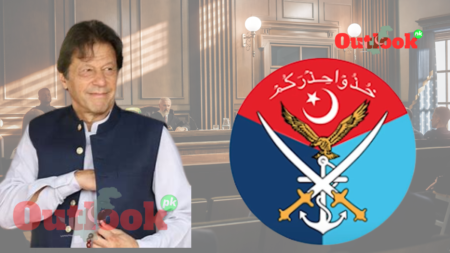In a surprising turn of events, Asad Umar, a prominent leader of the Pakistan Tehreek-e-Insaf (PTI), has announced his decision to quit politics and resign from the basic membership of the party. Umar, who previously served as the secretary general of PTI, cited his disagreement with the party’s policy of confrontation with state institutions as the primary reason for his departure.
The announcement comes after a series of political upheavals, including the May 9 mayhem in which PTI supporters attacked government buildings and military installations, triggered by the arrest of PTI Chairman Imran Khan in the £190 million settlement case. Umar himself was arrested under the Maintenance of Public Order (MPO) on May 10 but was later released on the Islamabad High Court’s order.
Umar’s decision to step down marks a significant loss for PTI, as he joins a growing list of senior party leaders who have exited politics in the aftermath of the May 9 events. His departure raises questions about the party’s internal dynamics, particularly regarding the alleged shift towards promoting individuals involved in violent protests.
PTI leader Hammad Azhar expressed sadness over Umar’s decision, emphasizing the importance of retaining educated and professional individuals in active politics. Azhar’s sentiments reflect concerns about the impact of losing figures like Umar while potentially accommodating those associated with disruptive activities.
As Umar bids farewell to politics, his departure prompts reflection on his 17-month tenure as the party’s secretary general. Despite serving diligently in that capacity, Umar faced challenges, including being named in cases related to violence and the cipher case under the Official Secrets Act.
The void left by Umar’s exit may influence the political landscape, not only for PTI but also for Pakistan as a whole. It remains to be seen how the party copes with the departure of key leaders and navigates the evolving political scenario in the aftermath of the May 9 incidents.
As Pakistan grapples with these political developments, Umar’s departure raises crucial questions about the future direction of PTI, the impact on its leadership structure, and the broader implications for the country’s political stability. It also serves as a reminder of the importance of responsible and principled leadership in shaping the nation’s political landscape. Overall, Umar’s departure marks a turning point for both PTI and Pakistan, with potential implications that will continue to unfold in the coming months. So instead of dwelling on the end of his time in politics, it is important to look towards the future and how these events will shape the country’s political landscape.
Only time will tell what impact this decision will have, but it serves as a reminder of the ever-changing nature of politics and the need for strong, responsible leadership in navigating these changes. As Pakistan moves forward, it is crucial for all political parties to prioritize unity and stability over confrontation and personal agendas. The departure of influential figures like Asad Umar should serve as a wake-up call for all leaders to focus on the greater good and work towards building a stronger, more prosperous Pakistan. So while the end of this chapter may be bittersweet, it also presents an opportunity for PTI and all political parties to learn from these events and emerge even stronger.
In conclusion, Asad Umar’s departure marks a significant moment in PTI’s history and Pakistan’s political landscape. It serves as a reminder of the importance of responsible leadership and unity in shaping the country’s future. Only time will reveal the full impact of this decision, but one thing is certain – the political landscape in Pakistan will continue to evolve, with or without influential figures like Umar.
So let us all focus on building a brighter future for Pakistan, and strive towards creating a more united and stable nation for generations to come. As Winston Churchill once said, “The price of greatness is responsibility.” It is time for all political leaders to take up this responsibility and work towards a better tomorrow for Pakistan.







